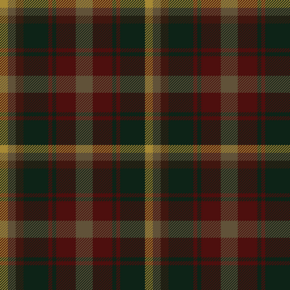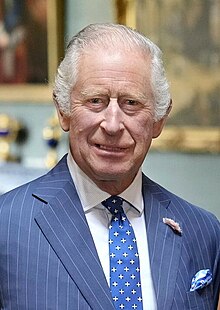Portal:Canada
| Showcase | Contents | Contributing |
Introduction
Canada is a country in North America. Its ten provinces and three territories extend from the Atlantic Ocean to the Pacific Ocean and northward into the Arctic Ocean, making it the world's second-largest country by total area, with the world's longest coastline. Its border with the United States is the world's longest international land border. The country is characterized by a wide range of both meteorologic and geological regions. With a population of just over 41 million people, it has widely varying population densities, with the majority residing in urban areas and large areas of the country being sparsely populated. Canada's capital is Ottawa and its three largest metropolitan areas are Toronto, Montreal, and Vancouver.
Canada is a parliamentary democracy and a constitutional monarchy in the Westminster tradition. The country's head of government is the prime minister, who holds office by virtue of their ability to command the confidence of the elected House of Commons and is appointed by the governor general, representing the monarch of Canada, the ceremonial head of state. The country is a Commonwealth realm and is officially bilingual (English and French) in the federal jurisdiction. It is very highly ranked in international measurements of government transparency, quality of life, economic competitiveness, innovation, education and human rights. It is one of the world's most ethnically diverse and multicultural nations, the product of large-scale immigration. Canada's long and complex relationship with the United States has had a significant impact on its history, economy, and culture.
A developed country, Canada has a high nominal per capita income globally and its advanced economy ranks among the largest in the world by nominal GDP, relying chiefly upon its abundant natural resources and well-developed international trade networks. Recognized as a middle power, Canada's strong support for multilateralism and internationalism has been closely related to its foreign relations policies of peacekeeping and aid for developing countries. Canada is part of multiple international organizations and forums. (Full article...)
Featured article -
The Klondike Gold Rush was a migration by an estimated 100,000 prospectors to the Klondike region of Yukon in northwestern Canada, between 1896 and 1899. Gold was discovered there by local miners on August 16, 1896; when news reached Seattle and San Francisco the following year, it triggered a stampede of prospectors. Some became wealthy, but the majority went in vain. It has been immortalized in films, literature, and photographs. (Full article...)
Featured biography -
Patricia Anne Stratigeas (/ˈstrætɪdʒiəs/; born December 18, 1975), better known by the ring name Trish Stratus, is a Canadian professional wrestler. She is signed to WWE. An inductee of the 2013 WWE Hall of Fame, Stratus is often regarded as one of the greatest female wrestlers in history. Stratus's 448-day reign as WWE Women's Champion stands as the longest reign of any women's world champion in the 21st century. (Full article...)
National symbol -

Regional tartans of Canada are represented by all Canada's provinces and territories having a regional tartan, as do many other regional divisions in Canada. Tartans were first brought to Canada by Scottish settlers; the first province to adopt one officially was Nova Scotia in 1956 (when registered at the Court of the Lord Lyon; adopted by law in 1963), and the most recent province was Ontario, in 2000. Except for the tartan of Quebec, all of the provincial and territorial tartans are officially recognized and registered in the books of the Court of the Lord Lyon, King of Arms of Scotland. (Full article...)
Selected vital article -

The monarchy of Canada is Canada's form of government embodied by the Canadian sovereign and head of state. It is one of the key components of Canadian sovereignty and sits at the core of Canada's constitutional federal structure and Westminster-style parliamentary democracy. The monarchy is the foundation of the executive (King-in-Council), legislative (King-in-Parliament), and judicial (King-on-the-Bench) branches of both federal and provincial jurisdictions. The current monarch is King Charles III, who has reigned since 8 September 2022. (Full article...)
Selected picture -
Current events
- January 6, 2025 –
- Davivienda, of Colombia, and Scotiabank, of Canada, announced a merger where Davivienda absorbs Scotiabank operations in Colombia, Costa Rica and Panama, and, in turn, Scotiabank acquires 20% of the stakes in Davivienda. (Scotiabank)
- January 6, 2025 – Resignation of Justin Trudeau
- Canadian Prime Minister Justin Trudeau announces his resignation as leader of the Liberal Party and also announces that he will resign as Prime Minister once a new Liberal Party leader is chosen. (BBC News)
- January 1, 2025 – Foreign relations of Mexico
- Mexico's Tax Administration Service implements new tariffs, including a 19% duty on goods from countries without international trade agreements with Mexico and a 17% duty on goods from Canada and the United States under certain value thresholds. (Reuters)
- December 16, 2024 – Resignation of Chrystia Freeland
- Chrystia Freeland resigns as Canada's Deputy Prime Minister and Minister of Finance amid disagreements with Prime Minister Justin Trudeau on increased government spending and how to handle possible U.S. tariffs imposed by the incoming Trump administration. (Reuters)
- December 11, 2024 – Russo-Ukrainian War
- The Parliament of Canada approves the allocation of CA$764 million (US$587 million) in military aid to Ukraine. (Ukrainska Pravda)
- December 3, 2024 – Red Sea crisis
- The Government of Canada officially designates the Yemen-based Houthi movement as a terrorist organization due to the group's attacks on civilian and military vessels in the Red Sea. (Al Jazeera)
Did you know -

- ... that La Poutine Week is the world's largest poutine festival, with 700 restaurants serving 350,000 people?
- ... that the documentary comedy films Being Canadian and When Jews Were Funny explore the filmmakers' cultural identity through interviews with dozens of comedians?
- ... that Chuck Eisenmann went from professionally pitching in baseball to owning and training the dogs that starred on the Canadian television series The Littlest Hobo?
- ... that the Canadian government implemented the Peasant Farm Policy to force First Nations farmers to use the methods of European peasants?
- ... that Canadian football player Nicholas Dheilly tied his team's single-game sack record in his debut?
- ... that in 2019, the Canadian government's Translation Bureau began providing translation services in Dene, East Cree, Plains Cree, and Mohawk?
- ... that both Christian Albright and De'Montre Tuggle were born on the same day, named second-team all-Mid-American Conference in 2020, signed with the Chicago Bears in 2022, and debuted in the CFL in 2023?
Featured list -
The Parliament of Canada is the legislative body of the government of Canada. The Parliament is composed of the House of Commons (lower house), the Senate (upper house), and the sovereign, represented by the governor general. Most major legislation originates from the House, as it is the only body that is directly elected. A new parliament begins after an election of the House of Commons and can sit for up to five years. The number of seats in parliament has varied as new provinces joined the country and as population distribution between the provinces changed; there are currently 338 House MPs and 105 Senators (when there are no vacancies). (Full article...)
Main articles
Associated Wikimedia
The following Wikimedia Foundation sister projects provide more on this subject:
 Commons
Commons
Free media repository Wikibooks
Wikibooks
Free textbooks and manuals Wikidata
Wikidata
Free knowledge base Wikinews
Wikinews
Free-content news Wikiquote
Wikiquote
Collection of quotations Wikisource
Wikisource
Free-content library Wikiversity
Wikiversity
Free learning tools Wikivoyage
Wikivoyage
Free travel guide Wiktionary
Wiktionary
Dictionary and thesaurus





















